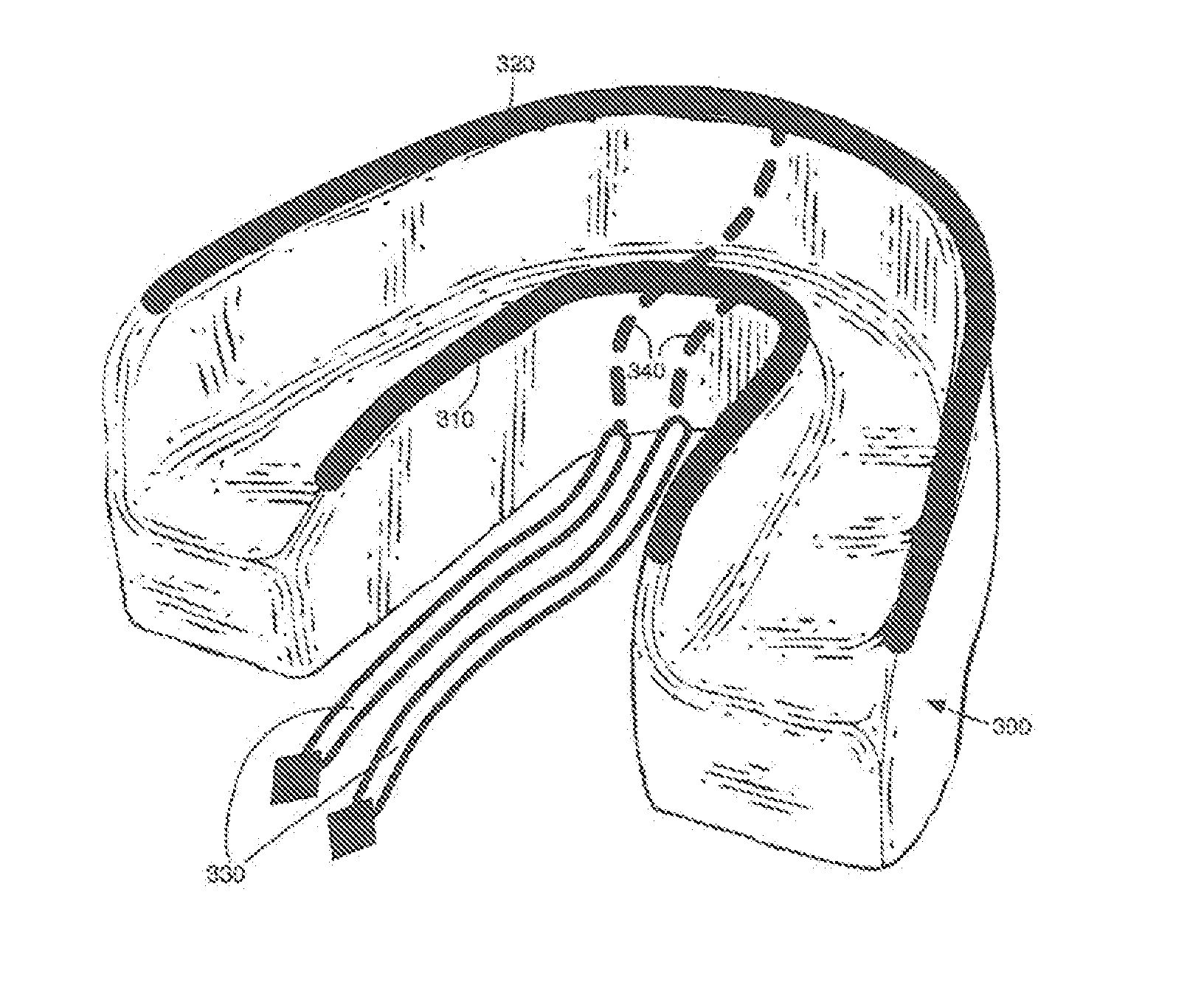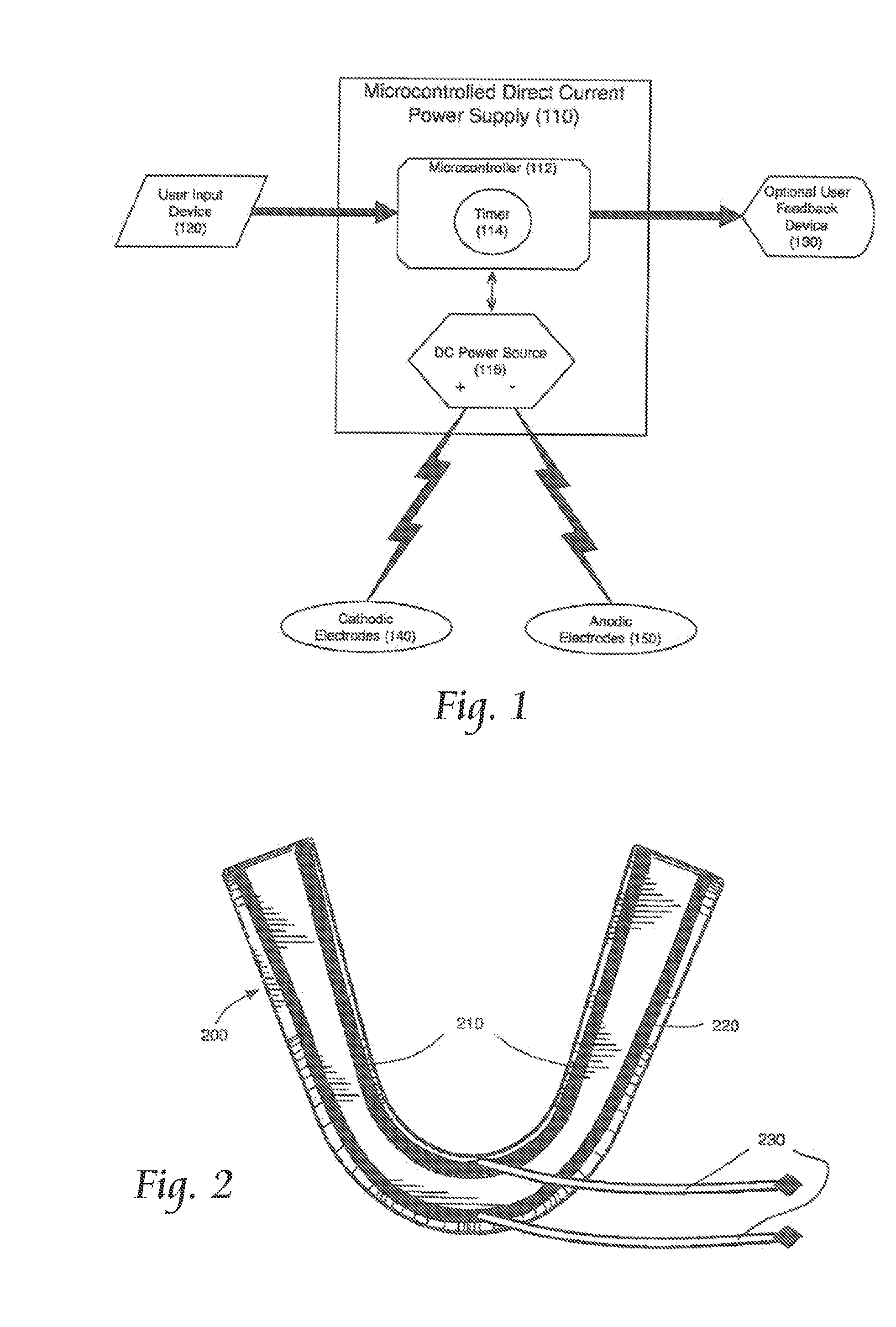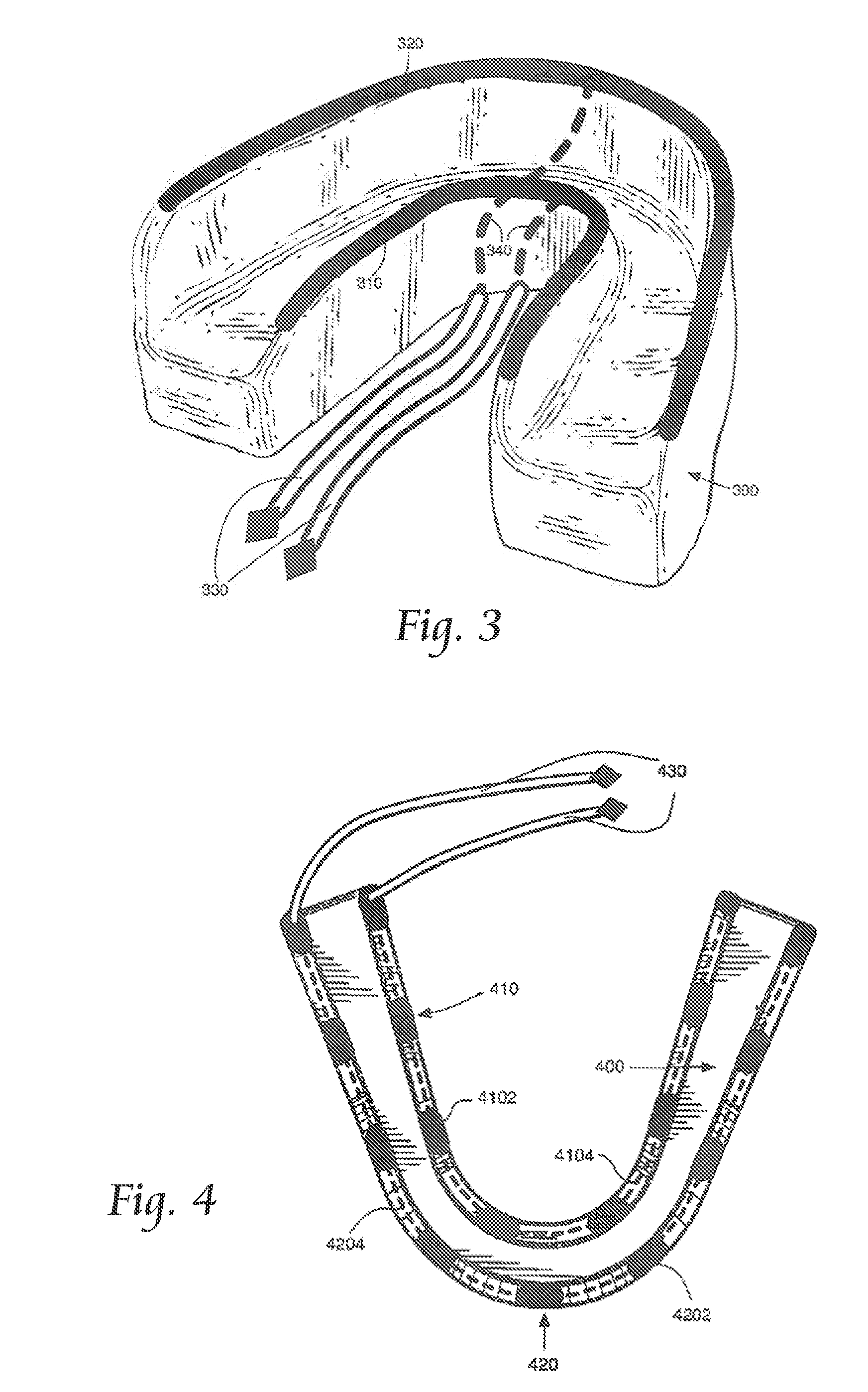Concurrent Treatment of Oral and Systemic Maladies in Animals Using Electrical Current
a technology of electrical current and oral cavity, applied in the field of concurrent treatment of oral and systemic maladies in animals using electrical current, can solve the problems of selective colonization of undesired sites, increased risk of cardiovascular diseases, and increased risk of periodontal disease, so as to reduce oral biofilms, increase salivation, and increase blood flow in oral tissues
- Summary
- Abstract
- Description
- Claims
- Application Information
AI Technical Summary
Benefits of technology
Problems solved by technology
Method used
Image
Examples
Embodiment Construction
[0048]Although the disclosure hereof is detailed and exact to enable those skilled in the art to practice the invention, the physical embodiments herein disclosed merely exemplify the invention which may be embodied in other specific structures. While the preferred embodiment has been described, the details may be changed without departing from the invention, which is defined by the claims.
[0049]It is known in the art that oral bacteria cannot survive when exposed to low-microampere direct current electricity. This method of killing oral bacteria and treating bacteria-caused conditions such as gingivitis has been demonstrated in Nachman, U.S. Pat. No. 4,244,373 of Jan. 13, 1981 and in Detsch, U.S. Pat. No. 4,509,519 of Apr. 9, 1985. Killing oral bacteria has the added benefit of preventing tooth decay and dental caries, or cavities. Generally, tooth decay is attributed to aerobic acid-producing bacteria whose acid causes uncompensated demineralization of the teeth. However, Nachman ...
PUM
 Login to View More
Login to View More Abstract
Description
Claims
Application Information
 Login to View More
Login to View More - R&D
- Intellectual Property
- Life Sciences
- Materials
- Tech Scout
- Unparalleled Data Quality
- Higher Quality Content
- 60% Fewer Hallucinations
Browse by: Latest US Patents, China's latest patents, Technical Efficacy Thesaurus, Application Domain, Technology Topic, Popular Technical Reports.
© 2025 PatSnap. All rights reserved.Legal|Privacy policy|Modern Slavery Act Transparency Statement|Sitemap|About US| Contact US: help@patsnap.com



